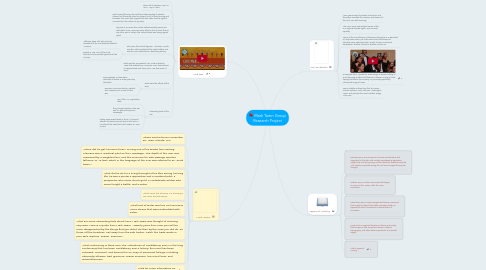Mark Twain Group Research Project
par Hayden Spresser

1. civil war
1.1. Helpful link about Civil War
1.2. when did it happen? April 12, 1861- May 9, 1865
1.3. what caused the war? the northern states wanted to abolish slavery, but the south relied on slavery for all of their farming and business. the south also argued that each state has the right to succeed from the nation at any time.
1.4. why was it an issue? the United States basically was at war with itself. more Americans were killed in the civil war than in any other war in history. the United States was being ripped apart.
1.5. who were the central figures? -Abraham Lincoln was the 16th president of the united states and was the main advocate for abolishing slavery.
1.5.1. jefferson davis- the first and only president of the Confederate States of America.
1.5.2. Robert E. Lee- one of the most talented and successful generals of the civil war
1.6. what was the Homestead Act? a law enacted in 1862 that enabled any American- even freed slaves, to expand west and claim up to 160 free acres of land
1.7. what were the effects of the war?
1.7.1. Emancipation Proclamation- declared all slaves in enemy territory liberated.
1.7.2. 600,000 Americans died in combat from disease or as a result of the war.
1.8. interesting facts of the war
1.8.1. 2% of the U.S. population died
1.8.2. the youngest soldier in the war was a 9 year old boy from mississippi
1.8.3. nearly 3000 people died in the 9/11 terrorist attacks, the same amount died in the first 15 minutes at the assault at Cold Harbor on June 3,1864.
2. Mark Twain
2.1. Where was he born? November 30, 1835, Florida, MO
2.2. Where did he get his name from? During one of his breaks from writing, Clemens was a riverboat pilot on the Mississippi. The depth of the river was measured by a weighted line, and the minimum for safe passage was two fathoms, or 12 feet, which in the language of the river was referred to as "mark twain,"
2.3. What did he do for a living throughout his life? During his long life, he was a printer's apprentice and a riverboat pilot, a prospector who never struck gold, a confederate soldier who never fought a battle, and a writer.
2.4. What was his stance on slavery? He was anti-slavery.
2.5. What kind of writer was he? He humorous ironic stories that were embedded with satire.
2.6. What are some interesting facts about him? Mark Twain was thought of as being very wise. Here is a quote from Mark Twain: "Twenty years from now, you will be more disappointed by the things that you didn't do than by the ones you did do. So throw off the bowlines. Sail away from the safe harbor. Catch the trade winds in your sails. Explore. Dream. Discover."
2.7. What controversy is there over The Adventures of Huckleberry Finn? In the long controversy that has been Huckleberry Finn's history, the novel has been criticized, censored, and banned for an array of perceived failings, including obscenity, atheism, bad grammar, coarse manners, low moral tone, and antisouthernism.
2.8. Click for more information on Mark Twain
3. Types of Writing
3.1. Romanticism is a movement in the arts and literature that originated in the late 18th century, emphasizing inspiration, subjectivity, and the primacy of the individual. Ended during the 19th century. Declined during the civil war changed the way we thought.
3.2. Realism was an artistic movement that began in France in the 1850's, after the 1848 Revolution.
3.3. Naturalism was a mainly unorganized literary movement that sought to depict believable everyday reality, as opposed to such movements as Romanticism or Surrealism.
3.4. Local color or regional literature is fiction and poetry that focuses on the characters, dialect, customs, topography, and other features particular to a specific region.
3.5. Link to Types of Writing
4. Civil War Literature
4.1. Main genres were traumatic and horror, and they were invested the violence and trauma of the Civil War with meaning.
4.2. The main social and political issues of the CW regarded states rights, and minority equality.
4.3. Some of the main themes of literature during the CW were that of unity, team work, yet at the same time the themes of literature were extremely dark. Death, trauma, emotional devastation, brother turned on brother, and so on.
4.4. During this time, "spirituals" were songs or stories, telling of God returning to take his followers to heaven, songs of God freeing the blacks from slavery, or just simply spiritually influenced songs of hope.
4.5. Some notable authors from this time were Charles Dickens, Walt Whitman, Washington Irvine, and perhaps the most notable, Edgar Allen Poe.



